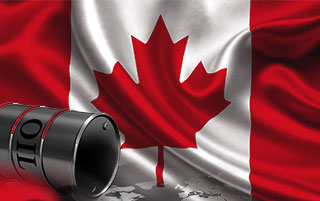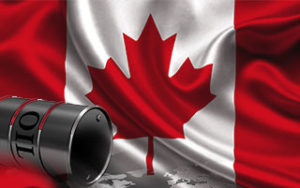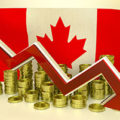For the past few years, there has been a very strong correlation between the price of oil and the strength of the Canadian dollar. In the last few weeks, this correlation has been weakening, as oil price fluctuations seem to affect the Loonie more when oil goes down, but not as much when the price of crude recovers. This is further proof about general economic weakness in Canada, which was hardly hit by the 2014 oil price plunge and has not been able to shift its export base to recover.
The Canadian dollar has only recovered by 0.5% after an oil price recovery of about 8% in August. This situation shows that Canada, having – in theory – all the instruments necessary to recover from the downturn in oil markets, has not been able to turn its situation around. Economic theory points towards proximity, common language, economic size and economic compatibility as factors that could boost one nation’s exports to another’s. Canada has all these factors working for it vis-à-vis the US, but has failed to capitalize.
The situation is more baffling given the fact that the economy south of the border seems to be performing well. Experts, government officials and industry leaders in Canada had also predicted that they would be able to turn the Loonie’s depreciation into an economic shift away from oil exports and into manufacturing exports. However this has not been the case.
Canada now seems to have only tough choices to make in order to get its economy back on the path towards robust growth. At this point, even if the Fed hikes interest rates on the US dollar, it seems that the Canadian economy will only see marginal benefits on the export side. In the meantime investors can expect the Canadian dollar to remain subdued due to weak jobs and real estate data coming from the great white north.
A recent spat with China about canola exports, will add to the pain and put further pressures on the value of the Loonie, while contributing to the decoupling we are seeing. If the Canadian dollar is poised to remain subdued even when oil prices recover, then it is time to change the focus of Canada’s economic policy. There are opportunities in this environment, but they will require a dramatic shift in the mindset of Canadians.





